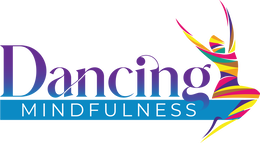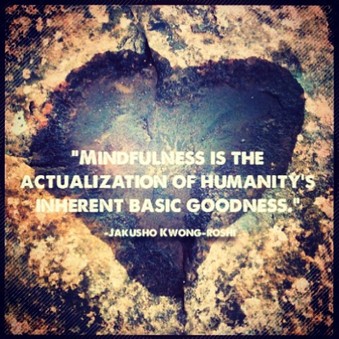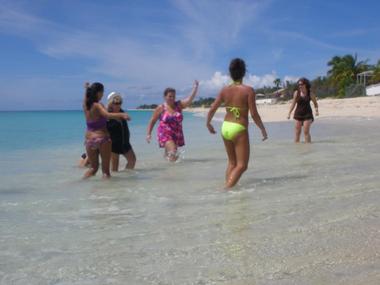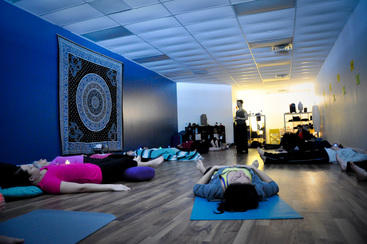|
Originally published on StartAgain Media
“Mindfulness is the actualization of humanity’s inherent basic goodness.” -Jakusho Kwong-roshi This program’s content is primarily self-discovery or self-care in nature and is not acceptable as continuing education. Several continuing education approval boards, including my own profession’s in my home state, use this line, or some variation of it, to reject programs related to yoga, compassion fatigue, self-care, or any other programs that they deem to be too “new age,” “expressive,” or “experiential.” It’s sad to say that at this point, I’m used to writing appeal letters and making a case for the legitimacy of mindful, experiential learning as valid continuing education for helping professionals. In fairness, not all regulatory continuing education overseers are in the dark ages; just about all of the national accreditation bodies are on board with the legitimacy of mind-body healing and creative approaches to learning. My negative experiences have been largely on the state level. Last year, when I stood before the counselor standards board of my home state, my jaw dropped and I literally froze in shock to hear one of the members say, “We set a dangerous precedent when we call self-care education. Some of the programs you do are more about professionals trying out some of these things (e.g., yoga, dance, meditation), and counselors should be doing that on their own time. Before long, counselors are going to want to count going on retreats and chanting and lighting incense and going to their own therapy as education. Education is education and self-care is self-care.” After taking some deep ujjayi breaths to move from the freeze response, I suggested that if we awarded counselors a certain portion of their required continuing education credits to try out events and programs that teach them how to take care of themselves better, then maybe we wouldn’t have such high rates of burnout. Maybe there wouldn’t be so many ethical violations. Self-care, in the eyes of many of us, is the most valuable continuing education of all. . The anger I experienced in response to their ignorance about the value of self-care as education has made me turn to the literature to further craft some of my arguments. There are over twenty peer-reviewed articles presenting research from both a qualitative and quantitative perspective on the value of self-care, particularly mindfulness meditation training, While I am currently in the process of formally synthesizing and reviewing these for an academic article, I wish to share with you some of the most poignant conclusions from this cannon through my blog: · Promoting mindfulness in psychotherapists-in-training could positively influence the therapeutic course and treatment results in patients (randomized, double-blind controlled study; Grepmair, Mitterlehner, Loew, et al, 2007) · Health care professionals participating in a mindfulness-based stress reduction program (MBSR) were able to more fully identify their own themes of perfectionism, the automaticity of “other focus,” and their tendencies to always enter “fixer” mode; this recognition led to numerous changes along personal and professional domains (grounded theory; Irving, Park-Saltzman, Fitzpatrick, et al., 2014); a similar study that exclusively studied nurses yielded similar findings (Frisvold, Lindquist, McAlpine, 2012) · In an extensive mixed methods research study with working psychotherapists from a variety of theoretical backgrounds, Keane (2013) concluded that personal mindfulness practice can enhance key therapist abilities (e.g., attention) and qualities (e.g., empathy) that have a positive influence on therapeutic training. He contends that mindfulness practice could provide a useful adjunct to psychotherapy training and be an important resource in the continuing professional development of therapists across modalities. In another qualitative study article that demonstrates the positive impact of mindfulness training on therapist trainees, Christopher, Chrisman, Trotter-Mathison, et al. (2011) make one of the wisest contentions that I’ve ever read in peer-reviewed literature: Although self-care is often touted as being important to counselors and psychotherapists, historically little has been done within graduate school to provide future therapists with self-care strategies (p. 318). When I was a graduate student at both the Master’s and Ph.D. level, little, if anything was said about the importance of self-care. In working with graduate students as a mentor and supervisor myself now, it saddens me that the landscape is still pretty bleak in most programs. If you are in a graduate program or have gone through one where self-care and self-discovery was promoted, I would be very happy to hear from you about your experiences and how they impacted your formation as a helper. For those of us who believe in the value of self-care and self-discovery and have experienced its benefits in our professional formation, the responsibility is ours to speak out about how it works. References Christopher, J.C., Chrisman, J.A., Trotter-Mathison, M.J., Schure, M.B., Dahlen, P., & Christopher, S.C. (2011). Perceptions of the long-term influence of mindfulness training on counselors and psychotherapists: A qualitative inquiry. Journal of Humanistic Psychology, 51(3), 318-349. Frisvold, M. H., Lindquist, R., & McAlpine, C. P. (2012). Living life in balance at midlife: Lessons learned from mindfulness. Western Journal of Nursing Research, 34, 265-278. Grepmair, L., Mitterlehner, F., Loew, T., Bachler, E., Rother, W., & Nickel, M. (2007). Promoting mindfulness in psychotherapists in training influences the treatment results of their patients: A randomized, double-blind controlled study. Psychotherapy and Psychosomatics, 76, 332-338. Irving, J.A., Park-Saltzman, J., Fitzpatrick, M., Dobkin, P.L., Chen, A., & Hutchinson, T. (2014). Experiences of health care professionals enrolled in mindfulness-based medical practice: A grounded theory model. Mindfulness, 5, 60-71. Keane, A. (2013). The influence of therapist mindfulness practice on psychotherapeutic work: A mixed-methods study. Mindfulness. DOI: 10.1007/s12671-013-0223-9.
0 Comments
Originally Published on StartAgain Media
“Water is the driving force in nature.” -Leonardo da Vinci When I was a child, I rolled my eyes when my health teacher, the talk shows that my mother watched, and yes, my mother herself told me that I needed to drink more water. Consuming 6-8 glasses of such a tasteless substance seemed like a chore. As I’ve aged, my position on water’s tastelessness has gratefully changed, along with my attitude towards it. Throughout my recovery, the importance of water as a vital piece of the wellness puzzle continues to grow, whether I’m drinking it, bathing in it, swimming in it, listening to it, or just appreciating the vast array of metaphors that come with the flow of water. In my career as a trauma educator, I’ve spent the last six years on my feet in front of audiences, talking for three, four, or up to eight hours at a time. When I began this portion of my work in 2008, my resistances about drinking so much water were still pretty high. Before I knew it, I realized that constantly hydrating was a necessity to not only keep my lips moistened but also to keep my body temperature regulated and my energy up. Sipping on coffee, soda, or even juice just didn’t cut it quite like water. I noticed that as I began drinking more water during my talks and classes, my desire for it in other areas of my life intensified—consuming a glass in the morning and a glass in the evening, drinking it with meals, sipping on it during clinical sessions, and even using it a vehicle through which to practice mindfulness. To me, there is no greater joy than just being in the moment with water. As a person who naturally overheats, taking a few mindful sips of water and noticing the slow trickle down my throat and into the rest of my body is one of the best techniques I have for coming back into my body when the literal heat or the heat of stress makes my head float away. On the other side of the spectrum, His Holiness the Dalai Lama discloses in much of his writing that sipping on hot water is a favorite activity of his for calming the nerves. As a young man, he found himself drinking a lot of tea and then one day it struck him that his body didn’t want the tea, his body wanted the warmth. I am also a big believer in the cleansing properties of water, not just literal, but energetic. When I began teaching with more and more frequency, a holistic health care practitioner I see suggested that after every talk I give, dance class I teach, or day’s worth of clients I see, to take a shower. As someone who was raised to shower in the morning or evening, taking showers at 5 or 6 in the afternoon became a bit of a shift in my routine, but it’s one I haven’t regretted. The difference in energy I feel afterwards is incredible. In the process, I’ve also been able to practice gratitude that I have the means to be able to take two showers a day, as it is not lost on me that a good portion of our planet is without a fresh water supply. I recently engaged in a wonderful conversation with the director of a treatment center. In dialoguing about the ways to practice mindfulness in everything, he shared, “I practice gratitude by realizing there are worse ways to start the day than by taking a hot shower.” How right he is. I can probably write a whole new blog post just on the virtues of soaking in a hot tub or taking a walk along the beach or a lake and listening to the music that the water creates. In sum, there are so many ways to practice wellness through getting in touch with the flow of water. Yes, nutritionists and healthy living experts continue to extol the virtues of drinking water, pointing out just how vital it is to hydrate for our health. My contention is that the more you spend time with water and its various form, the more you will realize this truth for yourself. One of the most formative lectures I heard as a student came from a PTSD specialist and retired Israeli Army officer, Elishiva Kaftal. In speaking about the importance of preventative self-care for clinicians she noted, “When you grow up in the Middle East, you know that if you’re drinking the water when you’re thirsty, it’s too late—you have to be constantly hydrating to stay healthy.” What fantastic wisdom that can be appreciated both literally and figuratively! Originally published on StartAgain Media
I began practicing yoga several years into my career as a helping professional. When I started getting involved at a studio near my home, I noticed a poster for a class that just spoke to me and captured everything I needed: Restorative Yoga. Usually described as a gentle yoga practice that helps its practitioners to deeply relax, Restorative Yoga is spectacular for helping all people to find a deep core of balance and total peace. When I found Restorative Yoga many years ago, I knew that I needed the help to relax. After all, helping people to relax was such an important part of my job as a therapist, but who was helping me? People who practice yoga primarily for physical fitness may judge Restorative Yoga with as a wimpy practice that makes use of all of those props. As one person I know would be likely to say, “Well it’s not very challenging.” For me, a recovering workaholic who is always on the go, my mind always moving, Restorative Yoga provides a tremendous challenge. Anytime a recovering workaholic and co-dependent can earmark a couple of hours for herself to not only relax, but receive assistance to relax in the form of a Restorative Yoga teacher or facilitator, it is a challenge. Speaking for myself, long affected by old messages that I must being “doing” something in order to be worthy of taking up space, any time I can enjoy just “being” is a major point of progress in my recovery. Dr. Judith Hanson Lasater is typically credited as the founding mother of Restorative Yoga as a practice. As shared on her website, “We work very hard in our lives, and while we may sleep, we rarely take time to rest. Restorative yoga poses help us learn to relax and rest deeply and completely.” As a helping professional, I need this practice! Although I’ve taken Restorative Yoga classes from a variety of teachers over the years, and have even learned to self-practice, my most recent experience with Restorative Yoga has been the most impacting. My yoga teacher and mentor, Maureen Lauer-Gatta, E-RYT-500 recently teamed up with two other talented people at our studio, Teresa Lisum, a retired educator/Dancing Mindfulness facilitator and Ethical Massage Practitioner, and Anthony Ellis, a singing bowl player. They offer monthly events called Retune and Recharge in which Maureen leads the participants through a restorative yoga class as Anthony plays; Teresa circulates the room assisting Maureen with deepening relaxation through appropriate physical touch. This past weekend, on my much-needed day off, I made my way to my home studio not to teach or to lead, but simply to receive. The whole practice, as promised, helped to retune and recharge me after a very stressful couple of weeks. There was a point in the class where I was lying there in a reclined, supported bound angle pose, completely relaxed in my breath, noticing the flow of the singing bowls’ vibrations moving through my body. The sonic vibrations were literally healing my insides energetically, and with every tone, my breath quality just continued to deepen. I was completely relaxed, and ultimately, completely grateful. Grateful for the practice and the event, grateful to Maureen, Teresa, and Anthony for their service, grateful for the studio, grateful for the resources I have to take such a class, and most importantly, grateful to myself for recognizing the importance of nurturing myself in this way! Wherever you’re at in the country or in the world, I encourage you to look up where Restorative Yoga may be offered in your community. Even if you have a very active, physically challenging yoga practice and experience the benefits of such a practice, consider giving Restorative Yoga a try; you might be surprised at the results, especially if you work as a helper or healer. For more information online, you can go to www.restorativeyogateachers.com, and there are a variety of home practice DVDs that you can access. |
Dr. Jamie MarichCurator of the Dancing Mindfulness expressive arts blog: a celebration of mindfully-inspired, multi-modal creativity Archives
September 2022
Categories
All
|
Contact |
Memberships & Affiliations |
|
Please direct all inquiries to:
[email protected] © Mindful Ohio & The Institute for Creative Mindfulness, 2021 Terms of Use Privacy Policy |
Dancing Mindfulness/The Institute for Creative Mindfulness is an organizational member of the International Association of Expressive Arts Therapists, the Dance First Association, and NALGAP: The Association of Gay, Lesbian, Bisexual, Transgender, Addiction Professionals and Their Allies; Dancing Mindfulness proudly partners with The Breathe Network and Y12SR: The Yoga of 12-Step Recovery in our shared missions.
|




 RSS Feed
RSS Feed